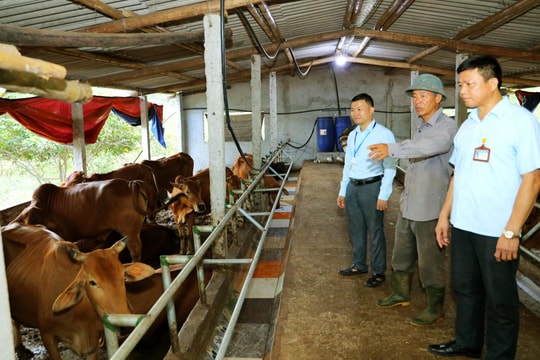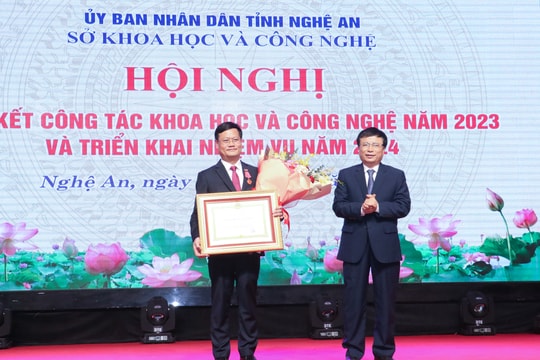Nghe An hands over science and technology products to Japanese partners
(Baonghean.vn) - Exploiting and processing sugarcane by-products will increase economic efficiency for sugarcane growers and aim for export.
On the morning of March 27, in Thai Hoa town, the Department of Science and Technology handed over a batch of experimental products for producing reserve feed for livestock from sugarcane by-products. This is a batch of scientific and technological products ordered through the technology supply-demand connection activity between the Department of Science and Technology of Nghe An and Japan.
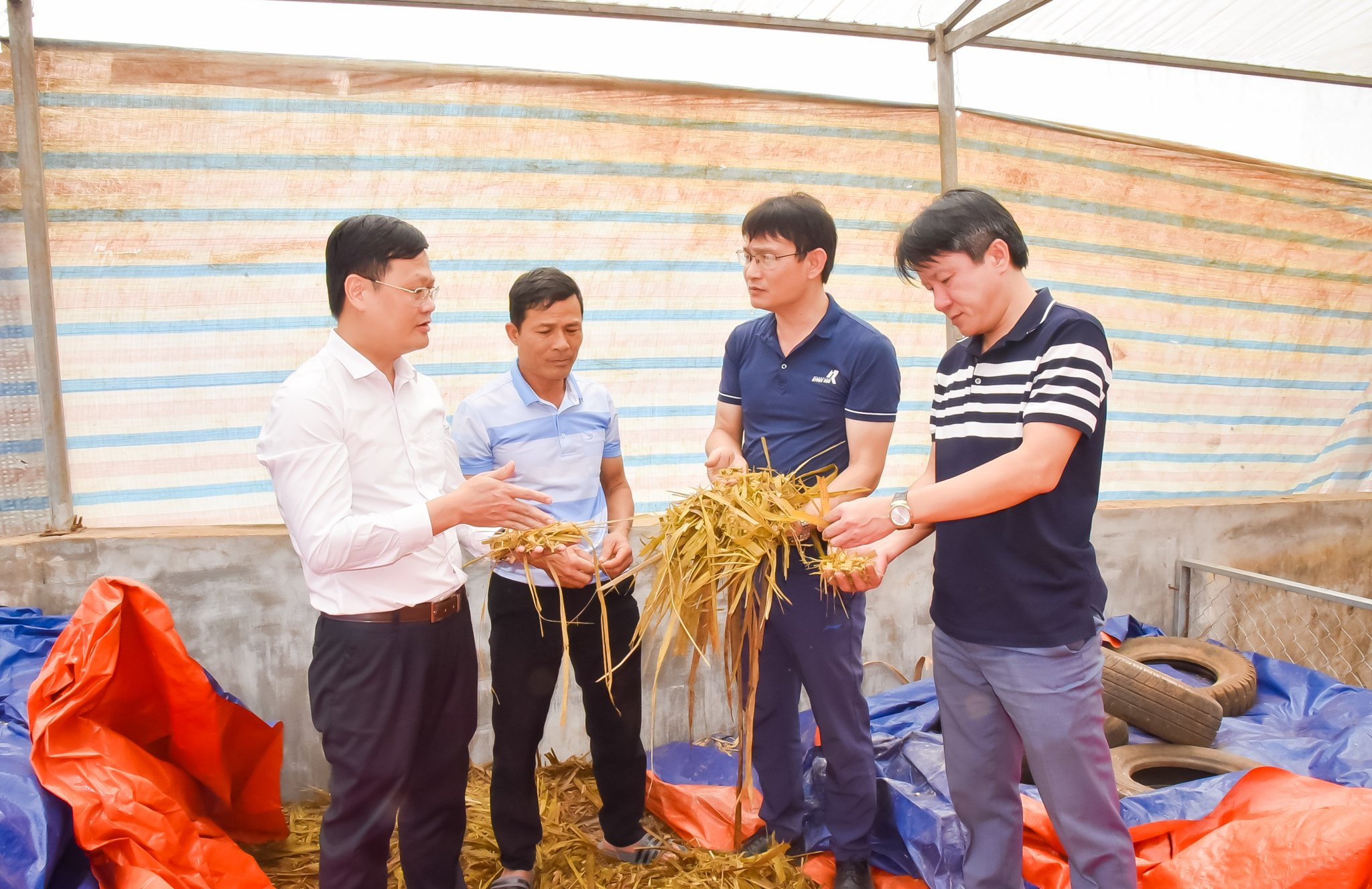
In Nghe An, sugarcane is one of the main crops in agricultural production. In recent years, the purchase price of sugarcane raw materials from factories has been relatively stable. At the same time, the Provincial People's Committee and related sectors have given timely instructions in promoting the application of scientific and technical advances in production development in raw sugarcane growing areas.
Thanks to the application of advances in varieties, farming techniques, and mechanization in planting, care, and plant protection, sugarcane productivity in the main raw material areas has been relatively high.
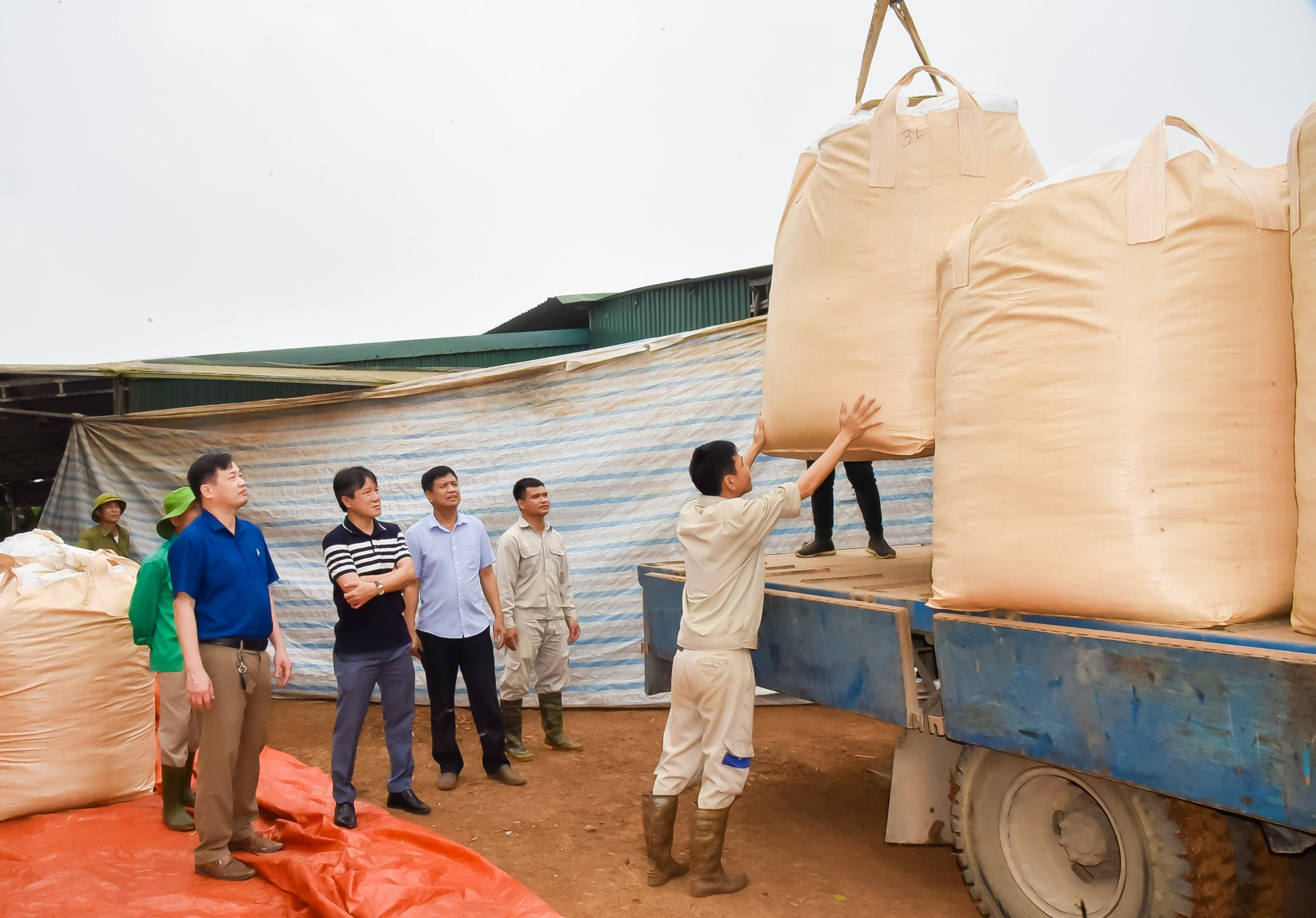
Therefore, the area of raw sugarcane planted by people is always stable and tends to increase every year, in 2022 the total area is 22,560 hectares, in 2023 the total area is 24,000 hectares. The average yield is 720 quintals/hectare, the total output of raw sugarcane in 2022 is 1,625 thousand tons.
In parallel, the source of raw materials from sugarcane tops is about 250 thousand tons/year, this is a huge source of by-products that are being wasted by people by burning and releasing into the environment every year, and there is still no effective solution for exploitation and treatment.
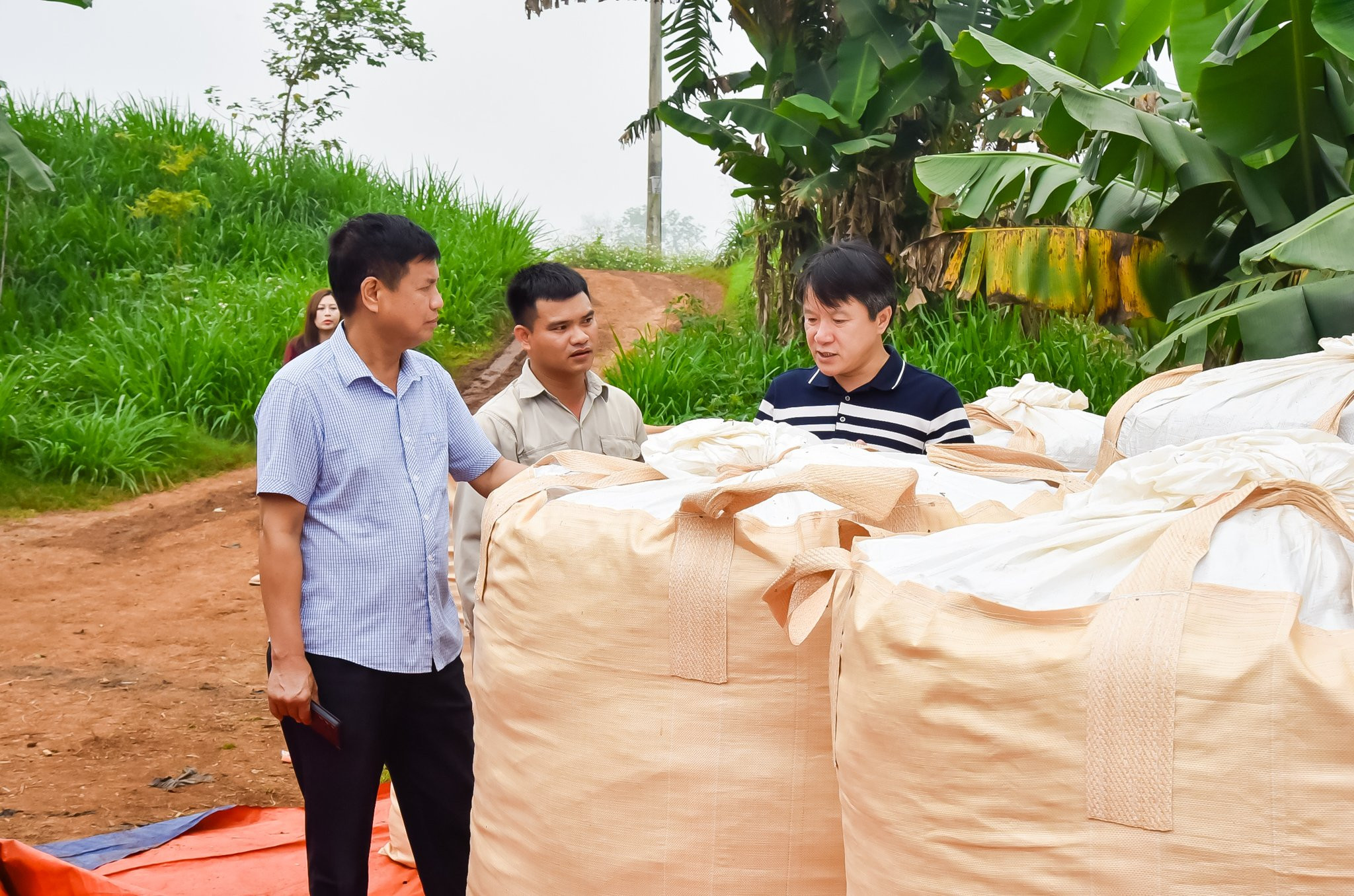
Meanwhile, Vietnam is considered to have great potential for developing the animal feed market. According to statistics, the total demand for concentrated feed for the entire livestock industry in Vietnam is about 33 million tons/year. However, the domestic supply is only about 13 million tons/year, accounting for 35%. Thus, Vietnam has to import up to 65% from the outside market.
This situation shows that the demand for animal feed is very high. Utilizing waste sources after sugarcane production to produce animal feed is extremely important, contributing to providing a source of food with high nutritional content for livestock while reducing by-products, improving and enhancing environmental quality.
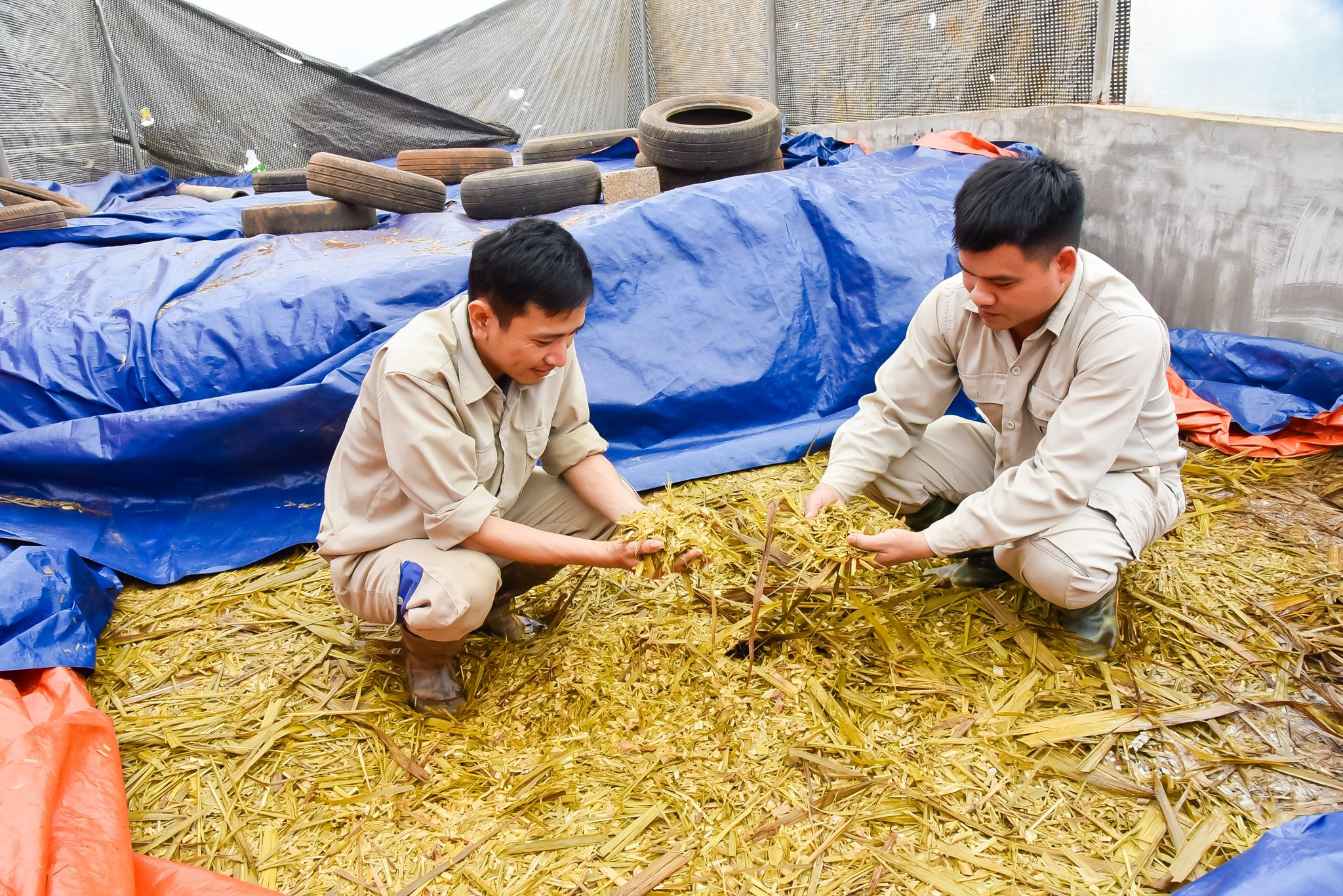
Based on the above reality, the Department of Science and Technology has researched and tested silage products from sugarcane by-products. This process of silage from sugarcane by-products is based on the process of silage from grass, corn, agricultural by-products, etc., creating a large volume of reserve feed for livestock farming in the province and aiming for export when meeting all conditions from countries in need.
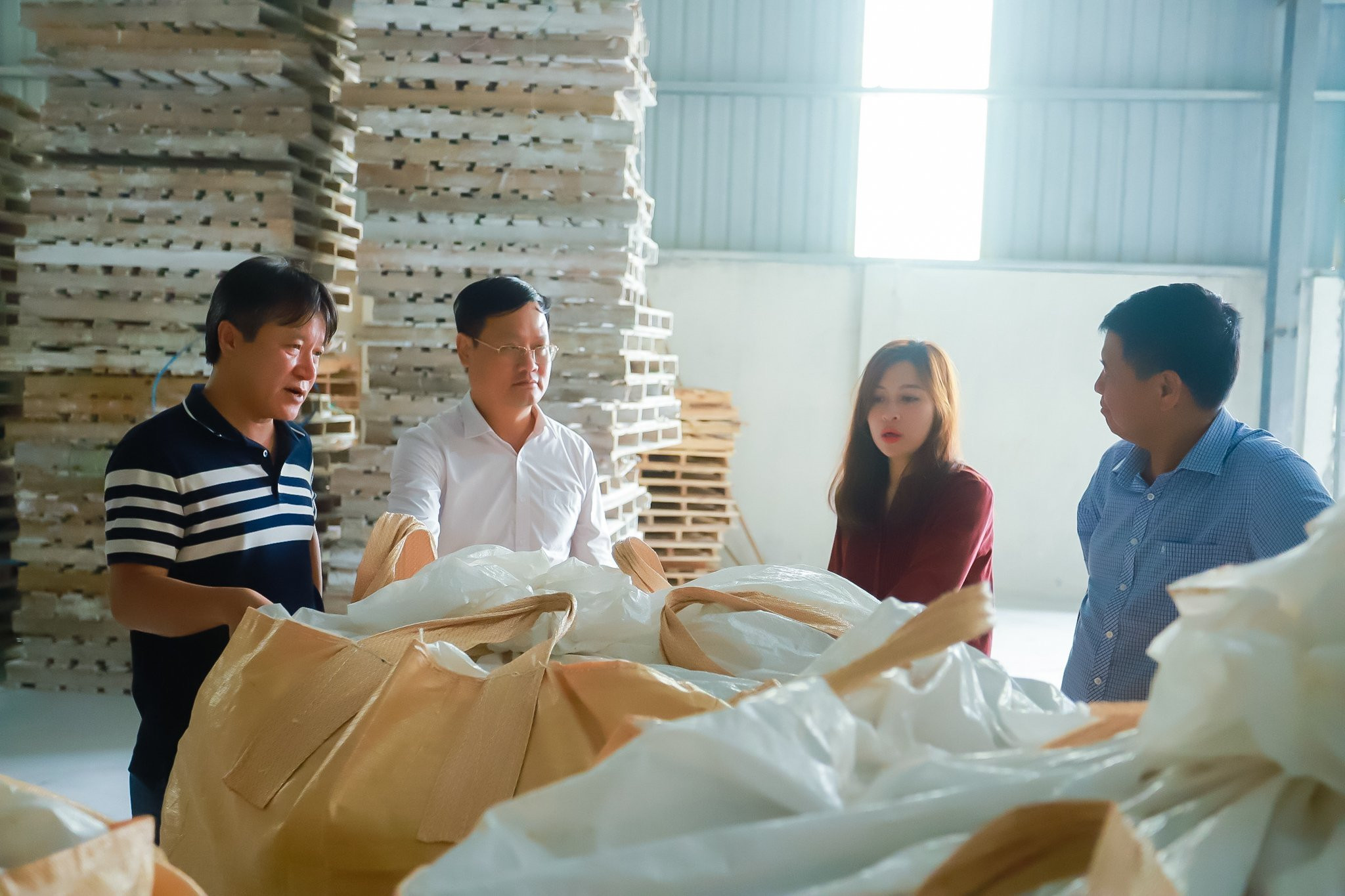
According to comrade Nguyen Quy Linh - Director of the Department of Science and Technology: Exploiting and processing sugarcane by-products will increase economic efficiency for people growing raw sugarcane, while also storing food sources during the dry season when green food sources become scarce to supply large livestock farms in Nghe An province and towards export when meeting suitable conditions according to orders from partners.
At the same time, it will contribute to solving a large amount of raw materials from agricultural by-products of sugarcane growers in the province, increasing economic efficiency from sugarcane cultivation, promoting the expansion of raw material areas according to the programs and projects set out by the province.
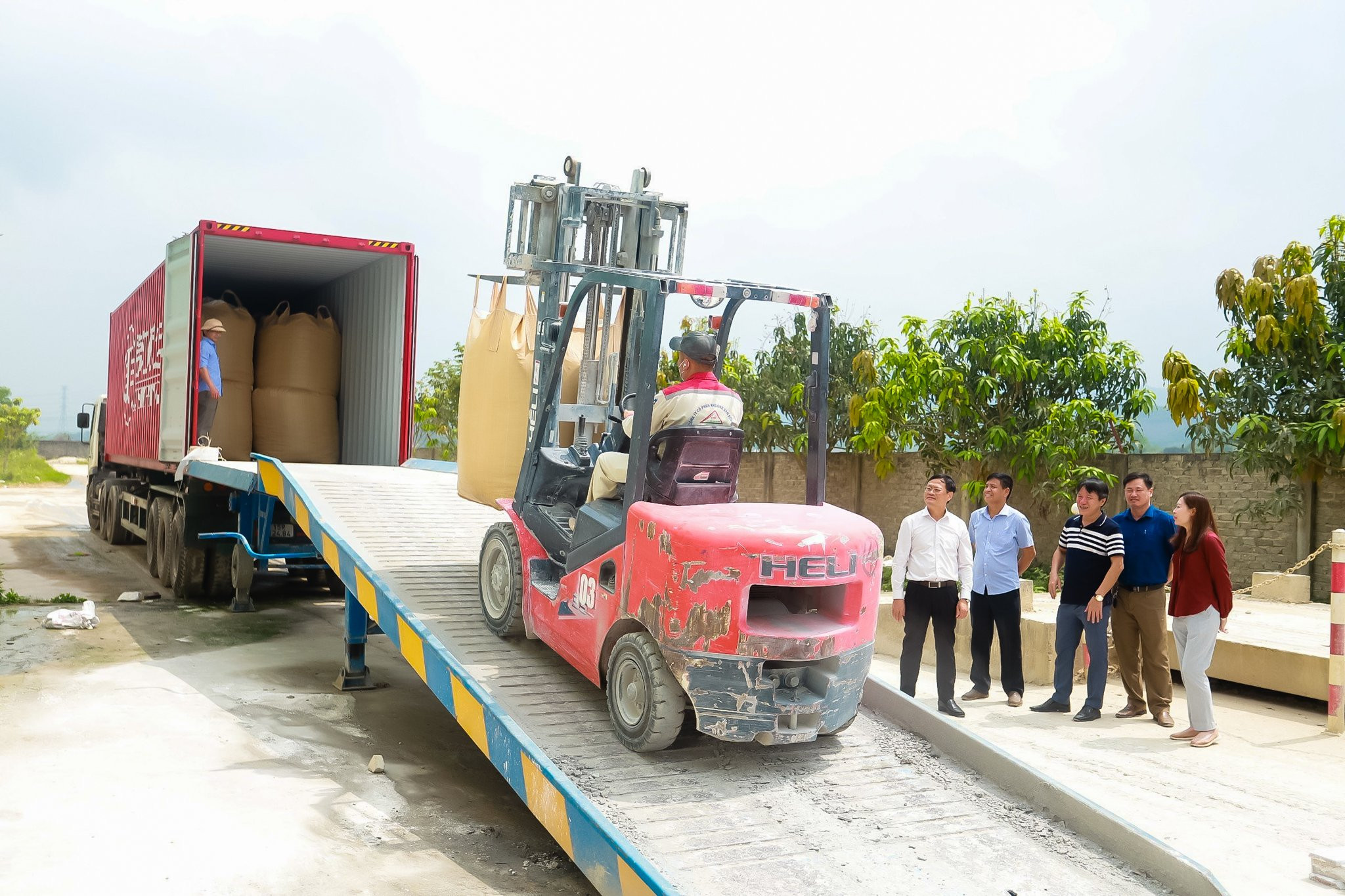
The application of biotechnology (microbiological technology) in the treatment of organic waste for animal feed is a new, modern and suitable direction, which is being prioritized for development by the Government and localities. It can be said that this technology, proposed and developed, will contribute to improving the value chain of sugarcane.
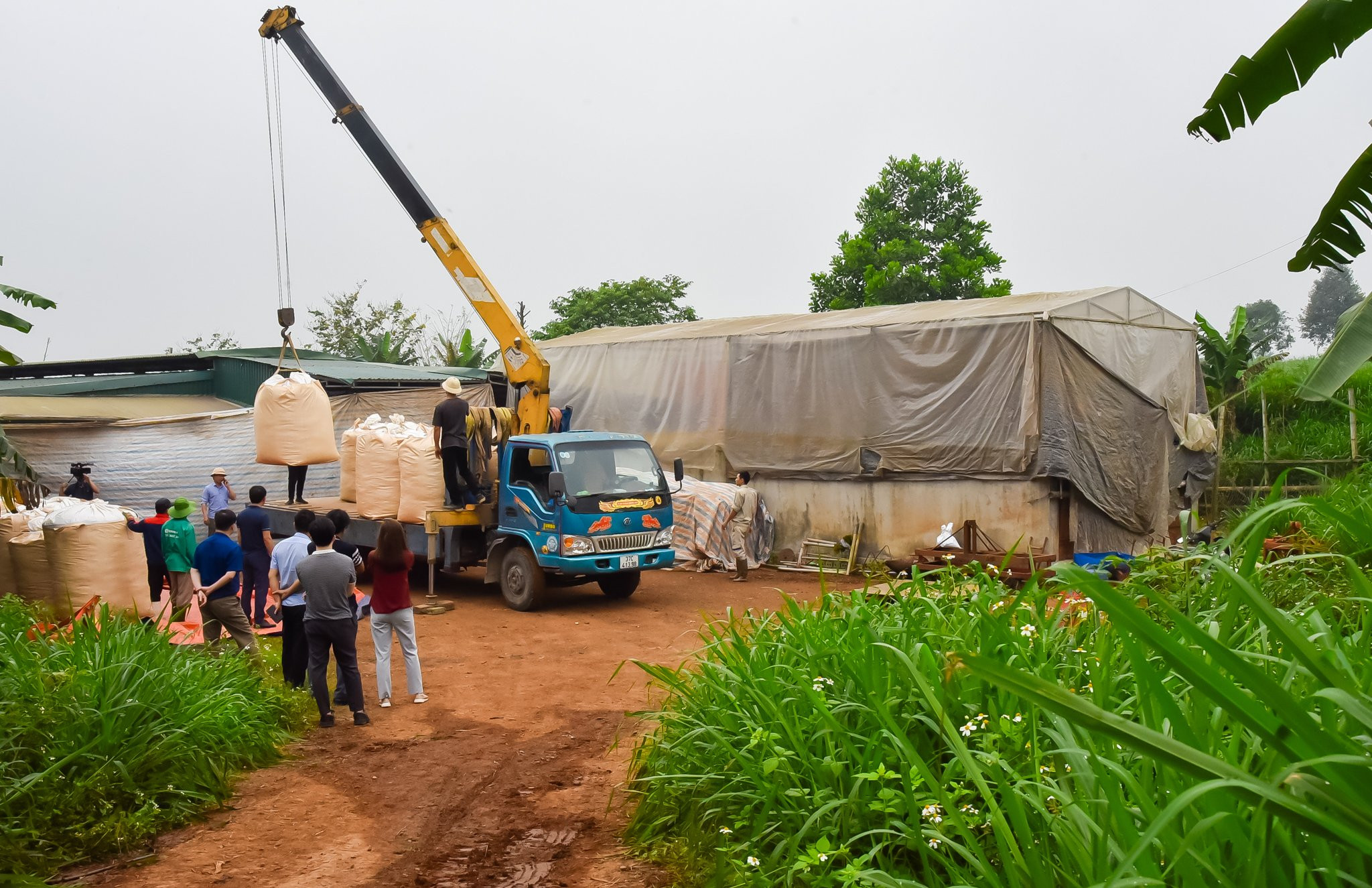
From the initial trial batch, if it meets the requirements of the Japanese partner, the Department of Science and Technology plans to advise the Provincial People's Committee to implement the project: Applying biotechnology to build a linkage model to develop the production of reserve feed for livestock from sugarcane by-products to serve the domestic market and export in the coming time.

